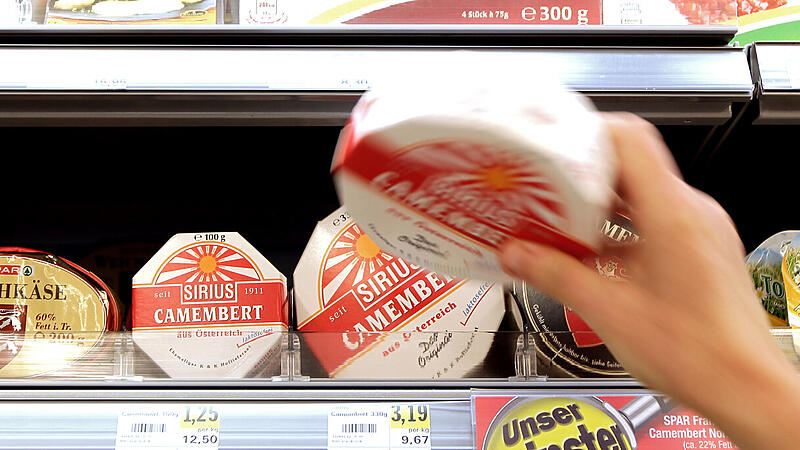Image: VOLKER WEIHBOLD

Image: HERMANN WAKOLBINGER
The reluctance of many Austrians to buy at the same time as significant cost increases are driving the 115 oö. Food manufacturers (3.4 billion euros in sales, 6,800 employees) see beads of sweat on their foreheads. Those who primarily process domestic ingredients such as milk, grain and oilseeds and sell them primarily in Austria are under severe pressure, said representatives of the food industry who met in Linz on Tuesday for a briefing.

Image: HERMANN WAKOLBINGER
“As Vivatis alone, we have additional costs of around 170 million euros for energy, raw materials and logistics this year, which we have to pass on. 20 million remain with us”said Gerald Hackl, head of the 1.3 billion sales group Vivatis. The prices for food in stores did not rise to this extent, even though consumers always complained about higher food prices. “But we are not the evil price gougers, we are not making a profit”, counters Hackl. Even if the grocery shopping basket was 11.3 percent more expensive in the second quarter of 2023 than in the same period last year, spending on groceries in a typical household only accounts for ten percent of total spending. Hackl understands “for those 300,000 Austrians who really can no longer afford to live”but defends himself against what he sees as disproportionate food price bashing.
Hardly enough for investment
The profits in recent years have hardly been enough to cover the necessary investments, and an industry shakeout is imminent or continuing, said other representatives of the food industry. “This has become dramatically worse for bakers and millers”said the boss of the Pregartner Pfahnl-Mühle, Andreas Pfahnl. He expects that out of 90 mills, 30 to 40 will stop operating in the next few years. The ever-increasing bureaucracy and high salaries would reduce competitiveness on international markets. As an Austrian player, you have much less negotiating power to pass on increasing costs to the trade, which is particularly concentrated in Austria, as multinational food companies could.
Consumers need to see the value of food again, not just the price, said Hubert Stöhr, head of the Schloss Eggenberg brewery in Vorchdorf. He notices that with beer in the catering industry “a glass price cap” had been achieved. Sales in the beer industry have already fallen by five percent in the first half of the year due to declining purchasing sentiment. Tobias Petzer from VFI (Vegetable Oils), based in Wels, also expects falling sales this year.
My themes
For your saved topics were
new articles found.

info By clicking on the icon you can add the keyword to your topics.
info
Click on the icon to open yours “my themes” Page. They have of 15 keywords saved and would have to remove keywords.
info By clicking on the icon you can remove the keyword from your topics.
Add the topic to your topics.
Source: Nachrichten




